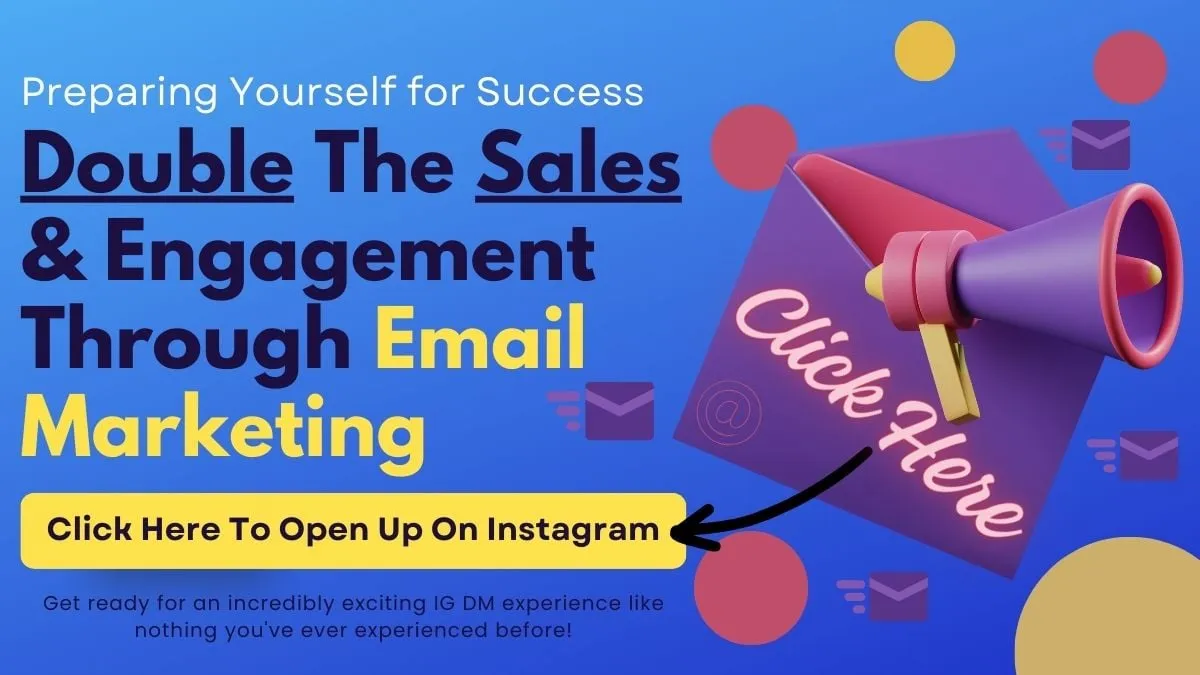Marketing Inoculation: The Art of Preemptive Brand Defense

In a world where a single tweet can sway public opinion and a viral video can make or break a brand overnight, inoculation marketing emerges as the savvy marketer's shield.
This strategy is not just a tool; it's a chess move in the high-stakes game of digital branding. Imagine being able to anticipate your opponent's moves and having a counter ready, not just to defend but to strengthen your position.
That's the power of inoculation marketing.
It's a method that interweaves the art of persuasion with the science of psychology, turning potential weaknesses into fortified strengths.
In this dynamic digital era, where every brand is under the microscope, inoculation marketing isn't just an option; it's a necessity for survival and success.
Understanding Inoculation Marketing

Utilizing psychological persuasion techniques integrated with strategic communication elevates inoculation marketing beyond a mere buzzword.
By introducing a controlled dose of potential criticism or counterarguments against a product or brand, companies aim to strengthen their audience's resistance to future, more persuasive criticisms or competitive messages.
The Basics of Inoculation in Marketing
At its core, inoculation in marketing is about acknowledging and addressing potential weaknesses or criticisms of a product upfront.
This strategy is akin to a chess game, where foreseeing and countering potential moves can determine success or failure.
Psychological Foundations: Building Resistance to Persuasion
The psychological underpinnings of inoculation marketing lie in its ability to foster resistance to persuasion.
When consumers are exposed to a weakened form of an argument, they develop counterarguments, making them less susceptible to stronger versions of that argument later.
Inoculation Theory in the Marketing Context
Inoculation theory, traditionally associated with health and wellness, finds a unique application in marketing. It's about preemptively 'vaccinating' the consumer's mind against future attempts to sway their perception of a brand or product.
The Role of Consumer Psychology in Inoculation Marketing

Delving deeper into inoculation marketing, it's crucial to understand its interplay with consumer psychology. This aspect is particularly significant in a world where digital platforms amplify messages and shape consumer perceptions rapidly.
Inoculation marketing leverages these psychological nuances, turning potential weaknesses into strengths and fostering a more resilient consumer base.
Developing Consumer Resistance to Future Persuasion
The essence of inoculation marketing in consumer psychology lies in its ability to 'immunize' consumers against future persuasive attempts.
By exposing them to diluted versions of potential criticisms, consumers are subtly equipped to resist more compelling negative messages in the future.
The Impact of Preemptive Messaging on Consumer Attitudes
Preemptive messaging in inoculation marketing isn't just about defense; it's a strategic move to shape consumer attitudes.
By addressing potential criticisms upfront, brands can steer the narrative in their favor, often enhancing consumer trust and loyalty.
Building a Resilient Consumer Base
Inoculation marketing contributes to building a consumer base that is not only loyal but also resilient.
These particular consumers are resistant to the influence of competing brands, as they have already thoroughly considered and resolved any possible reservations about the brand.
Crafting Effective Inoculation Marketing Campaigns

Creating a successful marketing campaign for inoculation requires the skills of a true artist in the realm of digital marketing.
It requires a delicate balance of honesty and strategic persuasion, tailored to preemptively address potential criticisms while reinforcing the brand's strengths.
This process is not just about mitigating risks; it's about actively shaping the narrative in a way that resonates with and empowers the audience.
Identifying Potential Weaknesses and Criticisms
The first step in developing an inoculation marketing campaign is to conduct a thorough analysis of the product or brand to pinpoint potential areas of criticism.
This requires a deep understanding of the market, consumer expectations, and competitive landscape.
Balancing Transparency with Persuasion
Once potential weaknesses are identified, the challenge lies in crafting messages that acknowledge these aspects while simultaneously highlighting the strengths.
This balance is crucial to maintaining credibility and trust with the audience.
Case Studies of Successful Inoculation Campaigns
Studying successful marketing campaigns for vaccination can provide essential insights.
These case studies demonstrate how brands have effectively used this strategy to preemptively counter potential criticisms and strengthen their market position.
Navigating the Ethical Dimensions of Inoculation Marketing

As with any powerful marketing strategy, inoculation marketing comes with its own set of ethical considerations. It's essential to navigate these responsibly to maintain trust and credibility with your audience.
This involves a careful balance between being transparent about potential shortcomings and not misleading consumers with exaggerated claims or false defenses.
The Fine Line Between Persuasion and Manipulation
Inoculation marketing treads a fine line between persuasion and manipulation. Ethical practice in this context means using inoculation to inform and prepare consumers rather than to deceive or manipulate their perceptions.
Maintaining Transparency and Consumer Trust
Transparency is the fundamental basis of ethical inoculation marketing.
This involves openly acknowledging potential product weaknesses while presenting them in a context that demonstrates the brand's commitment to honesty and consumer welfare.
Ethical Challenges and Best Practices
Addressing the ethical challenges in inoculation marketing involves adhering to best practices such as avoiding misleading information, respecting consumer intelligence, and ensuring that all marketing messages are grounded in truth.
Integrating Inoculation Marketing with Social Media Strategies

In the digital age, social media is a battleground for brand perception, making it an ideal platform for inoculation marketing.
Integrating inoculation strategies with social media campaigns allows brands to proactively shape their narrative, engage with audiences authentically, and build a fortified presence against potential negative sentiments.
Leveraging Social Media for Preemptive Brand Messaging
Social media's immediacy and reach provide a unique opportunity for inoculation marketing. By using these platforms to disseminate preemptive messages, brands can effectively 'vaccinate' their audience against future negative perceptions.
The Power of Engagement and Community Building
Inoculation marketing on social media isn't just about broadcasting messages; it's about fostering engagement and building a community. This approach helps in creating a loyal customer base that is more resistant to competitive persuasion.
Case Studies: Inoculation Marketing in the Social Media Realm
Examining case studies where brands have successfully integrated inoculation marketing with their social media strategies can offer valuable insights.
These examples showcase how preemptive messaging can be effectively used to strengthen a brand's position on social media.
Challenges and Best Practices in Inoculation Marketing

While inoculation marketing is a powerful tool, it comes with its own set of challenges. Understanding and navigating these challenges is crucial for marketers aiming to use this strategy effectively.
Best practices in inoculation marketing not only address these challenges but also ensure that the strategy is implemented in a way that is both effective and ethical.
Identifying and Overcoming Common Challenges
One of the primary challenges in inoculation marketing is identifying the right balance in messaging. Too strong a counterargument can backfire, while too weak a message may fail to build the desired resistance.
Understanding the audience and crafting a message that resonates without overstepping is key.
Best Practices for Effective Inoculation Campaigns
Best practices in inoculation marketing involve a deep understanding of the target audience, a clear identification of potential criticisms, and a strategic approach to message crafting.
It's also essential to continuously monitor and adapt the campaign based on audience feedback and changing market dynamics.
Avoiding Pitfalls and Ethical Missteps
Ethical considerations are paramount in inoculation marketing. Avoiding exaggeration, misinformation, and manipulation is crucial.
Marketers must strive to maintain transparency and honesty, ensuring that the inoculation strategy strengthens the brand's credibility and trustworthiness.
Measuring and Evaluating the Effectiveness of Inoculation Marketing Strategies

The true test of any marketing strategy lies in its effectiveness and the measurable impact it has on brand perception and consumer behavior.
Inoculation marketing, with its nuanced approach, requires specific metrics and evaluation techniques to gauge its success. Understanding how to measure and evaluate these strategies is key to refining them and maximizing their impact.
Key Metrics for Assessing Inoculation Marketing Success
To evaluate the effectiveness of inoculation marketing, it's important to track metrics such as changes in brand perception, engagement rates, and the strength of consumer loyalty.
These indicators can provide valuable insights into how well the inoculation message is resonating with the target audience.
Analyzing Consumer Feedback and Engagement
Consumer feedback, both qualitative and quantitative, is a vital source of information.
Analyzing comments, reviews, and social media interactions can offer a deeper understanding of how consumers are processing and reacting to inoculation messages.
Case Studies: Measuring Success in Real Campaigns
Looking at real-world examples and case studies where inoculation marketing strategies were measured and evaluated can provide practical insights.
These case studies can reveal what metrics were most indicative of success and how they were effectively utilized.
Conclusion: Embracing the Future of Inoculation Marketing
The emergence of inoculation marketing signifies a powerful transformation in the way brands tackle communication and persuasion in a skeptical and information-saturated market.
This strategy, rooted in psychological principles, offers a proactive approach to building brand resilience and fostering long-term consumer trust.
By preemptively addressing potential criticisms and weaknesses, brands can strengthen their position and inoculate their audience against negative influences.
The journey through the various facets of inoculation marketing—from its psychological underpinnings to its application in digital and social media landscapes and the ethical considerations it entails—highlights its complexity and potential.
The challenges and best practices outlined provide a roadmap for marketers to navigate this terrain effectively.
Moreover, understanding how to measure and evaluate the impact of these strategies ensures that marketers can refine their approaches for greater success.
As we look to the future, inoculation marketing is poised to become an integral part of the marketer's toolkit.
Its ability to adapt to the evolving digital landscape and its focus on building genuine, resilient connections with consumers make it a valuable strategy in an era where trust is both fragile and paramount.
For brands willing to invest in this approach, the rewards are not just immediate gains but also long-term loyalty and brand strength.




